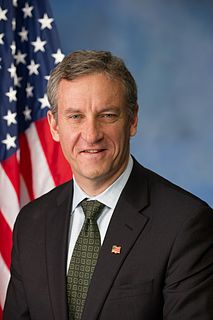A Quote by Mark Bittman
If price spikes don't change eating habits, perhaps the combination of deforestation, pollution, climate change, starvation, heart disease and animal cruelty will gradually encourage the simple daily act of eating more plants and fewer animals.
Related Quotes
One surprise is how deeply the food system is implicated in climate change. I don't think that has really been on people's radar until very recently. 25 to 33 percent of climate change gases can be traced to the food system. I was also surprised that those diseases that we take for granted as what will kill us - heart disease, cancer, diabetes - were virtually unknown 150 years ago, before we began eating this way.
For me the two biggest issues are climate change and animal welfare/animal agriculture. And oddly enough animal agriculture is such a contributor to climate change. According to the United Nations, 25% of climate change comes from animal agriculture, so every car, bus, boat, truck, airplane combined has less CO2 and methane emissions than animal agriculture.
Oceans need more attention because climate change IS an ocean issue. Our oceans will be the first victim, and sea life will suffer dramatically. Detailed proof is hard in ocean science, but I think we're already seeing big ocean changes caused by climate change, such as starvation of whales, seabirds, and other animals off the coast US west coast.
There are many people who enjoy animal based foods and who have no interest in changing the way they eat. And as you correctly pointed out, animal products are an integral part of some ethnic groups and societies and it would be nearly impossible for them to change thousands of years of traditional eating habits.
Every change in conditions will make necessary some change in the use of resources, in the direction and kind of human activities, in habits and practices. And each change in the actions of those affected in the first instance will require further adjustments that will gradually extend through the whole of society. Every change thus in a sense creates a "problemfor society, even though no single individual perceives it as such; it is gradually "solvedby the establishment of a new overall adjustment.
In fact, we would know ourselves that we are not meant to be meat eaters, and we would not have allowed ourselves to become conditioned to meat eating in the first place, if the effects of meat eating were felt right away. But since heart disease, cancer, diabetes, osteoporosis, etc. usually take many years to develop, we are able to separate them from their cause (or contributing factors) and go on happily eating an animal-based diet.
The pleasure of eating should be an extensive pleasure, not that of the mere gourmet. People who know the garden in which their vegetables have grown and know that the garden is healthy will remember the beauty of the growing plants, perhaps in the dewy first light of morning when gardens are at their best. Such a memory involves itself with the food and is one of the pleasures of eating. (pg. 326, The Pleasures of Eating)


































